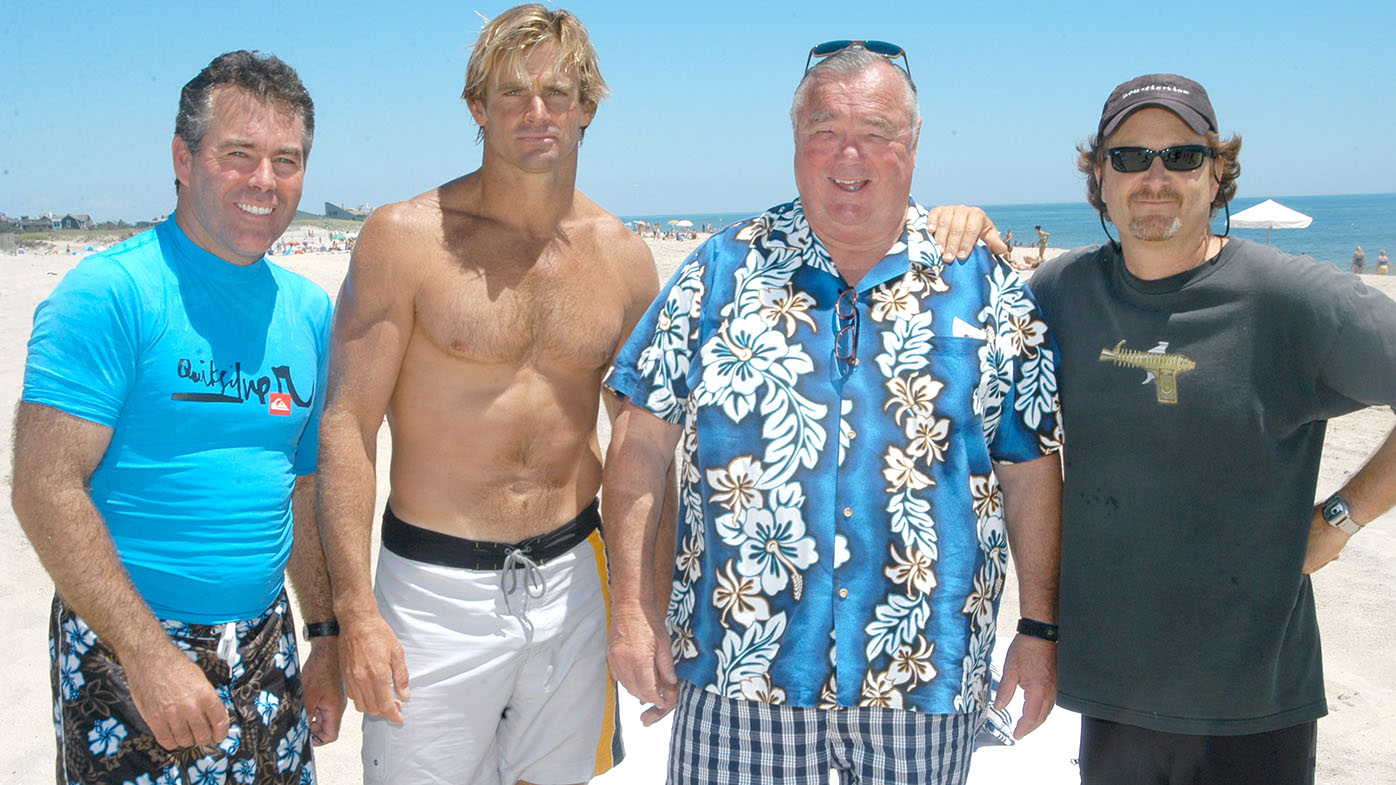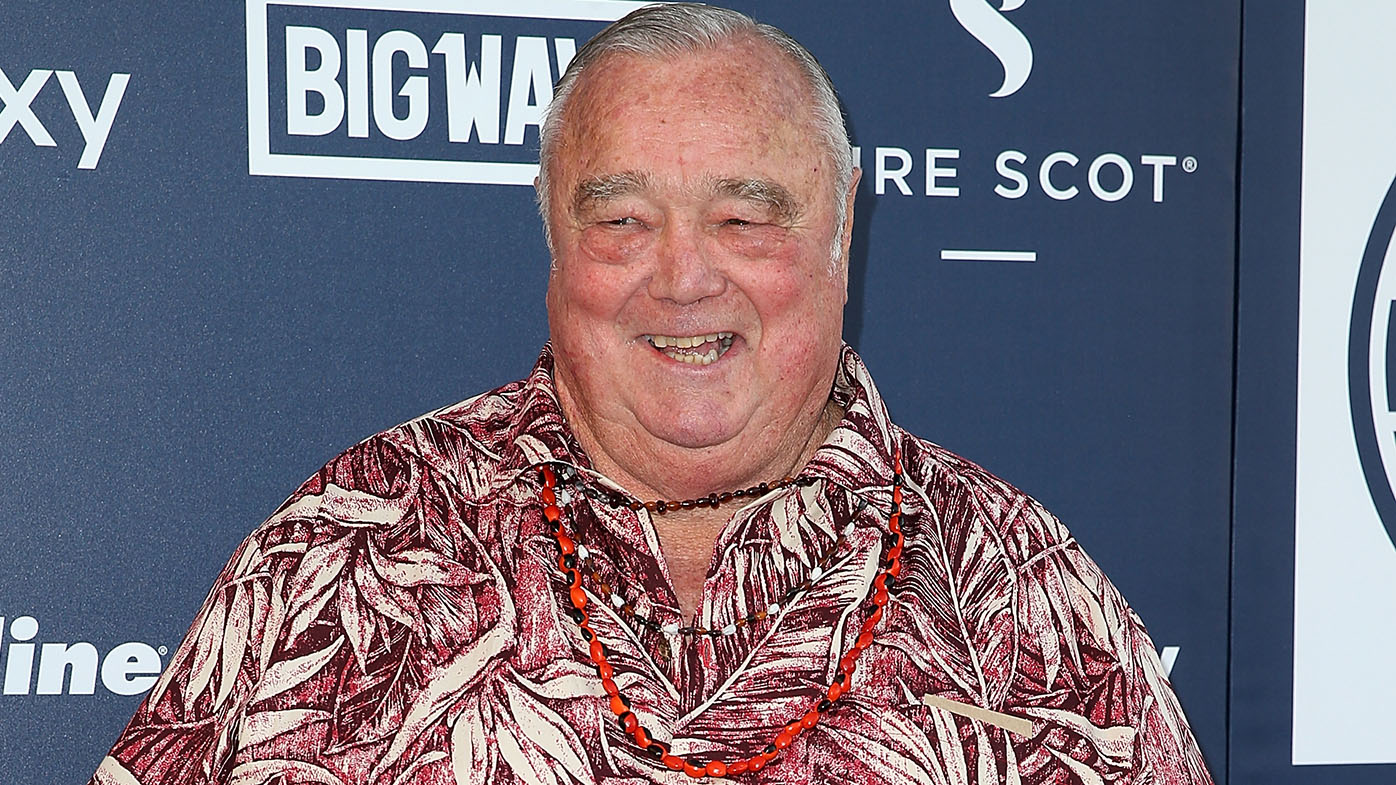Greg "Da Bull" Noll, who became a surfing legend by combining a gregarious, outsized personality with the courage and skill to ride bigger, more powerful waves than anyone had ever attempted, has died. He was 84.
Noll, who had lived in the picturesque, seaside town of Crescent City, California, died Monday of natural causes, according to an Instagram post from his son's company, Noll Surfboards. Requests for comment from the Noll family were not immediately returned, and it was not clear where he died.
One of the first and arguably one of the greatest big-wave riders, Noll was much more than a surfer. He was also an entrepreneur who helped transform the sport with his Greg Noll surfboards, which were among the first to be built from balsa wood, a substance that made them more maneuverable and light enough for most people to use.
He also appeared in numerous surfing documentaries, worked as a photographer on the 1967 film "Surfari" and was the stunt double for James Mitchum in the 1964 film "Ride the Wild Surf." In 2010, he and his son Jed launched a surf apparel line.
It was the towering waves he caught, coupled with a blunt but friendly manner, that made Noll's reputation.
From the early 1950s through the 1960s, he traveled from Southern California to Mexico, Australia and the North Shore of Hawaii's island of Oahu in search of the biggest waves.
It was in October 1957, at Waimea Bay on Oahu's North Shore, where he led a handful of surfers to a place where the waves can reach three stories high in the winter. The bay was said to be impossible to surf, and residents claimed nobody had tried since a young California surfer, Dickie Cross, had been killed there in 1943.
Grainy footage shows Noll catching a wave perhaps as high as 30 feet (nine metres), then somehow managing to stay standing as it pitches him some 10 feet (three metres) or more straight down its face. From there, he moves outside and rides it nearly to the shore.
Years later, Noll would let out a cackle and an expletive as he recalled his first thought after finishing that ride: "I'm still alive!"
https://twitter.com/dallaskilponen/status/1409649229362917376?s=20
From then on, there was no stopping the surfer who was instantly recognisable in his distinctive black-and-white "jailhouse" shorts. He started wearing them, he once said, so people would know it was him on a wave and get out of his way.
In 1964, Noll was credited with being the first person to ride a wave at Oahu's Third Reef Pipeline. In 1969, at Hawaii's Makaha Beach, he rode what surfers who saw it asserted was the biggest wave anybody ever caught up to that point.
There was no definitive film footage taken that day, however, and in recent years, others have said the wave was no more than 20 feet (six metres), not even as big as the ones Noll had surfed at Waimea. Still, no one who questioned the wave's size doubted Noll's skill or bravery in hauling his board into the pounding surf that day.
Soon after the Makaha Beach ride, Noll left surfing, closing his surfboard factory in Hermosa Beach and moving to Northern California, where he became a successful commercial fisherman and later a sport fishing guide.
He was unhappy, he said years later, with what the popular "Beach Party" movies of the 1960s had done to surfing. The films flooded the Southern California shoreline, he said, with people who couldn't surf, got in the way of those who could and didn't understand or appreciate the sport.
"That whole Hollywood scene at that particular time was just a mess when it came to doing anything meaningful with the surf community," Noll told The Associated Press in 2013. "They lived in their own little bubble and thought surfing was all about beach parties and people jumping around dancing in the moonlight to funny music."
By the late 1980s, however, commissions started coming in for custom-made surfboards. Noll opened a little shop in his garage to make them, putting his son Jed, then a teenager, to work with him.
In 2009, his son opened Noll Surfboards in San Clemente and put the father to work designing a line of customized boards for collectors that commemorate historical surfing events or honour legendary surfers.
"It gives me a chance to work with my son and share what I know about the ocean and the boards and the history," Noll told the AP in 2018.
https://twitter.com/surfingcomtweet/status/1409660439093383170?s=20
"Da Bull" was born Greg Lawhead in San Diego on February 11, 1937, later taking the last name of his stepfather, Ash Noll. He moved to the surf town of Manhattan Beach with his mother when he was three and soon developed an affinity for the water.
As a young man, Noll had a bodybuilder's physique, and it was that, along with what fellow surfers described as his hard-charging, bull-headed surfing style, that earned him his nickname.
Although he disdained the "Beach Party" movies, Noll acknowledged that out of the water, he could be a hell-raiser and a good-time party guy himself. He took to surfing, he once said, because it was more fun than working.
As he told the AP in 2008: "People always ask, 'What is it that makes people want to give up their friends, their family, their jobs and just go surfing?' Those people always categorise surfing as a sport. But it's not. It's a lifestyle."
A complete list of survivors was not immediately available. Noll and his wife, Laurie, had daughter Ashlyne and sons Jed, Tate and Rhyn.
For a daily dose of the best of the breaking news and exclusive content from Wide World of Sports, subscribe to our newsletter by clicking here!


Leave a Reply
You must be logged in to post a comment.